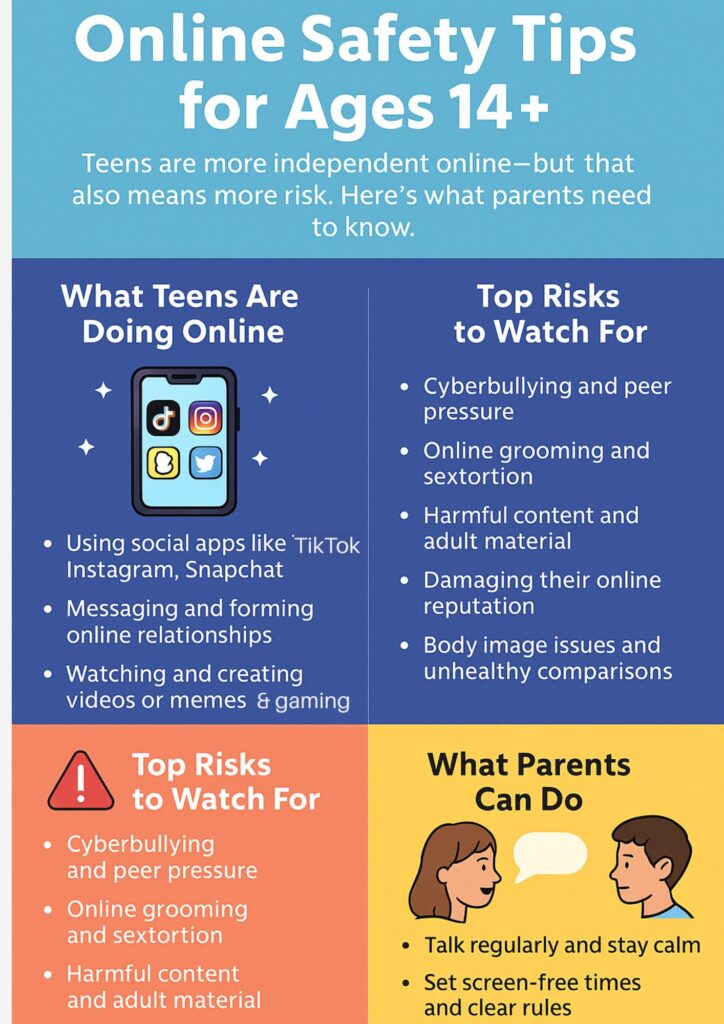Online Safety for Ages 14+: Supporting Teens in a Digital World
As teens become more independent online, they face new risks like peer pressure, harmful content, and online relationships. This guide helps parents support safer, smarter choices in the digital world.

Watch the Online Safety Videos
As teens gain more independence online, they also face increasing exposure to digital risks. From social pressure and harmful content to online relationships and identity exploration, it’s a time filled with both opportunities and challenges. This guide gives parents the tools and confidence to support their teens in making safe, informed, and empowered choices online.
Here are some of the latest online trends
Help your teen create their first resume

Important contact information parents should know

How to set parental control on Netflix

How to find safe games for my teen
Quick Guide for Parents

Resources for teens
If your teen needs additional support, share the following resources with them. From helplines to forums with others their age, there are many ways for them to get support.
More in the hub
What Are Teens Doing Online?
Using multiple social media apps (Instagram, TikTok, Snapchat, Discord)
Exploring online relationships and private messaging
Consuming and sometimes creating content (memes, videos, gaming streams)
Engaging in online activism, gaming, or community forums
Researching topics related to identity, health, and current events
Common Online Risks for 14+
Cyberbullying & peer pressure
Online grooming or sextortion
Harmful content (self-harm, eating disorders, hate speech)
Overexposure to adult content (via social apps or search)
Reputation risks (posting something that impacts future school or career)
Unhealthy comparison and body image struggles from influencers
What Parents Can Do
Talk regularly about what your teen is doing online
Keep questions open-ended and avoid judgment
Discuss things like privacy, respect, and how to spot red flags
Should I monitor my teen’s phone?
Yes—with openness and clear boundaries
Let them know you’re checking for safety, not spying
Use tools like Bark, Qustodio, or Family Link transparently
How do I talk about sexting and online relationships?
Normalize the conversation—it’s common at this age
Explain the risks: emotional pressure, legal consequences, reputation damage
Encourage them to come to you if they feel uncomfortable or unsafe
Supporting age guides
Explore a range of age guides across online issues to help support your teen.




